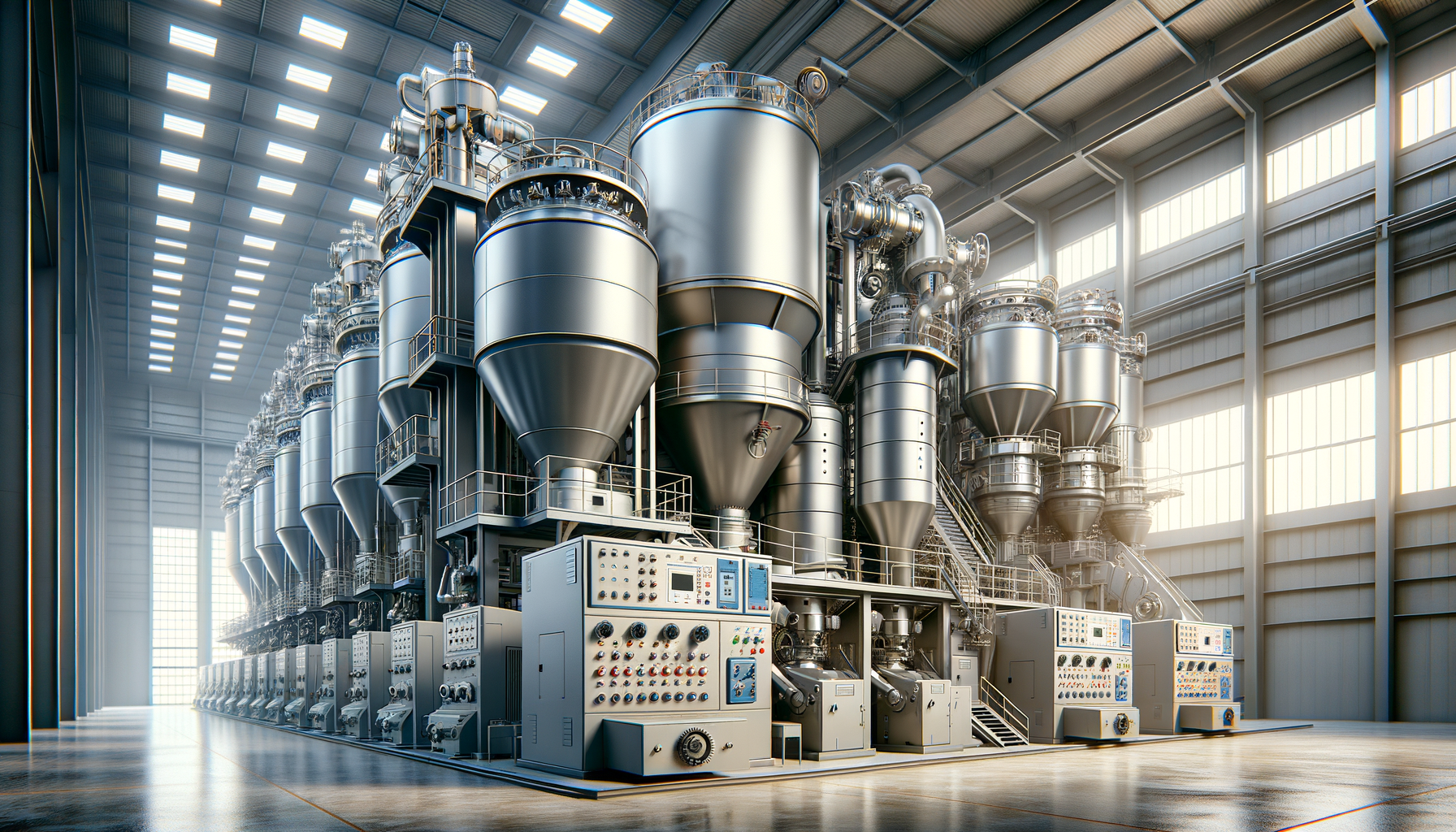The Role of Dry Powder Mixer Machines in Industry
Dry powder mixer machines are indispensable in various industrial sectors, ensuring the efficient and uniform blending of materials. Their importance spans industries such as pharmaceuticals, food production, and chemical manufacturing. These machines are engineered to handle large quantities of powder, ensuring that every batch meets the required consistency and quality standards. In industries where precision is paramount, the ability of these machines to deliver consistent blending performance is crucial. The meticulous engineering behind these machines allows them to manage different powder characteristics, such as particle size and density, which can significantly affect the final product’s quality.
Moreover, dry powder mixer machines are designed with features that ensure dust control, which is a vital aspect in maintaining workplace safety and hygiene. The containment of dust not only protects workers but also prevents contamination of the product, thereby ensuring compliance with industry regulations. Whether used in the production of pharmaceuticals, nutritional supplements, or chemical compounds, these machines are integral to maintaining high production standards and achieving operational efficiency.
Key Features of Industrial-Grade Powder Mixers
Industrial-grade powder mixers are equipped with a variety of features that enhance their functionality and reliability. One of the most notable features is their ability to handle large-scale production while maintaining uniformity in mixing. This is achieved through advanced mixing technologies that ensure even distribution of ingredients, regardless of their physical properties.
These machines often include:
- Variable speed settings to accommodate different mixing requirements.
- Robust construction materials that ensure durability and long service life.
- Automated controls for precision and ease of use.
- Designs that facilitate easy cleaning and maintenance, reducing downtime.
Another critical feature is the integration of safety mechanisms that protect operators and the environment. These may include dust extraction systems and enclosed mixing chambers. The combination of these features makes industrial-grade powder mixers a reliable choice for manufacturers looking to optimize their production processes.
Applications Across Various Industries
Dry powder mixer machines find applications in a wide range of industries, each with its unique requirements and challenges. In the pharmaceutical industry, for instance, these machines are used to blend active pharmaceutical ingredients (APIs) with excipients to produce tablets and capsules. The precision and consistency offered by these mixers are vital in ensuring that each dose contains the correct amount of API, which is essential for efficacy and safety.
In the food industry, powder mixers are used to produce products such as instant soups, drink mixes, and baking ingredients. The ability to achieve uniform mixing of ingredients is crucial for maintaining product quality and flavor consistency. Similarly, in the chemical industry, these machines are used to blend various chemical powders, ensuring that the final product meets the desired specifications and performance standards.
The versatility of dry powder mixer machines makes them a valuable asset in any industry that requires the blending of powders, contributing to improved product quality and operational efficiency.
Choosing the Right Powder Mixer for Your Needs
Selecting the appropriate dry powder mixer machine depends on several factors, including the type of materials being mixed, the desired production capacity, and the specific requirements of the industry. It is essential to consider the machine’s capacity and whether it can handle the volume of production needed without compromising the quality of the mix.
Another consideration is the type of mixing mechanism employed by the machine. Different mechanisms, such as ribbon blenders, paddle mixers, or conical screw mixers, offer varying advantages depending on the material properties and mixing requirements. Additionally, the level of automation and control features available can significantly impact the ease of operation and integration into existing production lines.
Consulting with manufacturers and conducting thorough research can help identify a mixer that aligns with your production goals and budget, ensuring a wise investment that enhances your operational capabilities.
Future Trends in Powder Mixing Technology
The field of powder mixing technology is continually evolving, with advancements aimed at improving efficiency, precision, and sustainability. One of the emerging trends is the integration of smart technologies and IoT (Internet of Things) capabilities into powder mixers. These innovations enable real-time monitoring and control of the mixing process, allowing for adjustments to be made on-the-fly to optimize performance.
Another trend is the development of energy-efficient machines that reduce power consumption and minimize environmental impact. This is particularly important as industries strive to meet stricter environmental regulations and reduce their carbon footprint. The use of advanced materials and design techniques is also contributing to the creation of more durable and reliable mixers, capable of withstanding the rigors of industrial use.
As these trends continue to shape the industry, businesses that adopt these technologies will likely gain a competitive edge, benefiting from improved productivity and reduced operational costs.




Leave a Reply